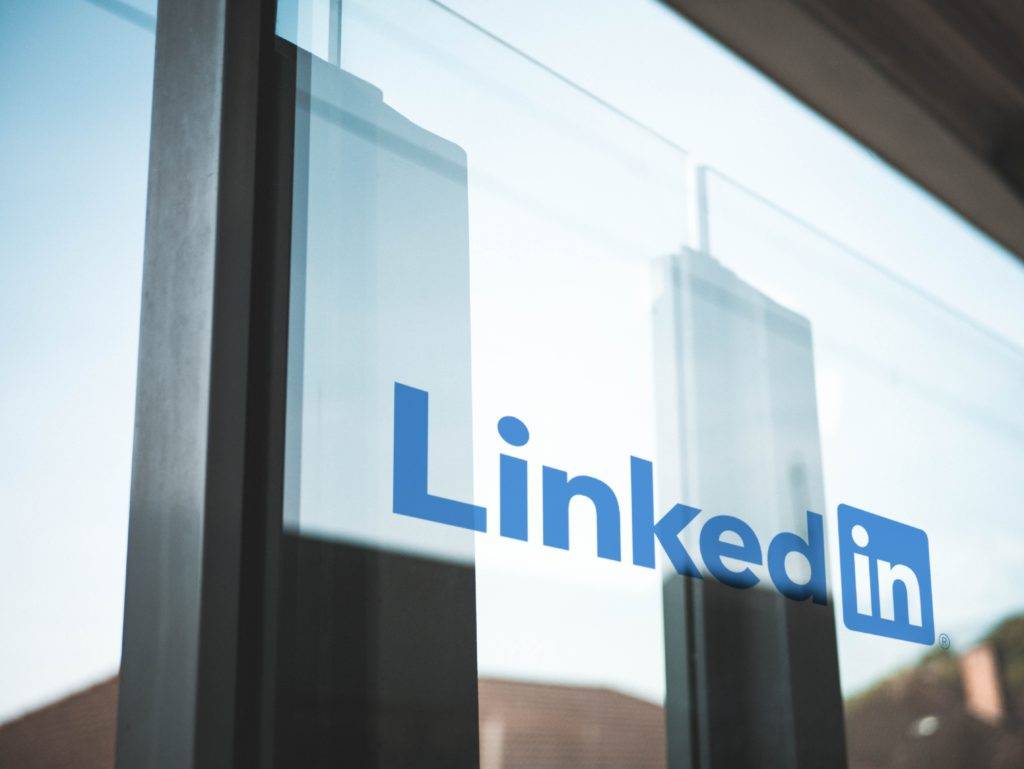Are your deals turning into ghost stories? 9 ways to minimize the risk of prospect ghosting

You’ve been ghosted. The realization sends a shiver down your spine.
Whether it's in dating or sales, we all know the drill. The first meeting seemed to go well, you’re feeling confident, you send a follow-up message…..then nothing. Or even worse, you’ve been going back and forth for a while, have been introduced to the relevant parties, you’re making plans to go official with a contract or agreement..... and then radio silence.
You’re left wondering if it was all in your imagination, and over-analyzing exactly where it went wrong, and if it was something that you said. Or maybe thats just me? 🤔
Ahem...well, don’t worry - it’s not you, it's them. Most of the time anyway.
Salespeople get ghosted every day for many different reasons. Maybe the timing’s off, or your prospect doesn't have the cash, or maybe…just maybe, they weren’t a good prospect in the first place.
Yes, just like the dating world, it can be harsh in B2B sales, especially with the current economic uncertainty. At any time, 80% of cold calls go to voicemail. And according to The Jolt Effect 40-60% of the average salesperson's total opportunity set is actually lost due to no decision.
A prospect ditching out after a few great calls may make you feel like an awkward break-up. And it makes for an uncomfortable deal review when 20% of your pipeline suddenly disappears with no explanation. Luckily, there are some things that you can do to minimize the risk of a prospect ghosting you and prevent deals from going unexpectedly off the radar.
Whether you’re selling software, services, or something else, in doing so, you’re ultimately looking for a business relationship. And we want to help you to create and keep them. Read on to understand the motivations that your prospects have in metaphorically swiping right on your company and what might have given them the wandering eye.
Why do prospects ghost sales reps?
Unfortunately, ghosting is fairly common in the sales world. It’s (not usually) personal, but a natural human instinct to want to avoid an awkward situation - people generally don’t like to deliver bad news. Sales reps who understand why it happens will be better prepared to minimize the risk of ghosting.
There are usually five common reasons why prospects go quiet:
- Timing
- Not a good fit
- Talking to a competitor
- You did something wrong
- Buyer indecision
Timing
I know, I know....the ‘timing’ excuse sucks 🙄
Most potential clients go silent rather than let you know that it's not you, it's them. There are several reasons why the timing can be off, mainly dependent on the size of your prospect and how mature their organization is.
Budget issues
It happens, and it's embarrassing. Data tells us that half of small businesses don’t have an official documented budget. And even for those organizations that do, budgets can still get cut. One of the reasons that clients ghost is because they discover they don't have the money to pay for your product, but they're too embarrassed to tell you.
Unfortunately, sometimes a lack of budget can stem from a change in priorities. When that happens, it is likely to be just as frustrating for your champion as it is for you. But, it doesn’t necessarily mean the deal is completely lost, so it’s worth circling back in a few months after the sales pitch to see if you can offer assistance.
Organizational changes
Companies and their needs are continually changing. And unfortunately, employees move on to different roles - sometimes without warning. If your sales team wants to avoid radio silence, they need to be proactive and understand what’s happening in the business culture of their prospects.
Actively listen to everything your prospects say and make notes in your CRM. It may help your team regain contact if you do get ghosted.
Your solution isn’t a good fit
Ultimately, your prospects don't owe you anything, especially not an explanation. During the sales process, a few companies may determine that your product doesn't fit their needs.
If your prospects still want to maintain a good relationship, they may worry that being direct with your sales team about the poor fit could damage that. In Politeness Theory, this is called positive politeness. Positive politeness highlights friendliness and camaraderie between the speaker and the hearer.
Most people don't like breaking up, which is what it feels like when a prospect has to tell a salesperson that it's not going to work out.
They're talking to a competitor
Chances are your competitive landscape is ripe with options, and your prospects know that. If someone goes unexpectedly silent during the sales cycle, one of the most likely reasons is that they're talking to someone else.
Questions are your most powerful tool here. From the initial discovery, talk with your prospects candidly about whether they’re looking at any competitors and what they find attractive about them. Everyone on your team should be able to speak about your competitors and give an in-depth analysis of what you offer over them (and vice versa!). For more information, read our guide on sales discovery questions.
You did something wrong
Humans are fallible. Your sales team will probably trip up and make mistakes every once in a while. Based on the 'Politeness Theory', many of your decision-makers may be acting on the principle of negative politeness. When being “negatively polite," the speaker chooses to avoid conflict so they can continue to have freedom of choice. In other words: they ghost because it's easier than explaining what you did wrong.
Now, we weren't in the sales meeting, or on the Zoom call, so we can't say specifically what went wrong but, here are some common things we've seen:
- Missing a crucial point and asking your contact to repeat it
- Misunderstanding the client's pain points
- Asking a question that your prospect has already answered
- Wasting your prospect's time by speaking about something they already knew
These are pretty cringe-worthy examples. They happen, but you can resolve all of them with active listening.
Buyer indecision
When you combine the pace of business change with the fact that an average of seven people are involved in the buying decision, it's no wonder that 40-60% of deals are lost to buyer indecision.
The buying process may stall if your potential clients are unable to agree on the right path forward. In most cases, customer indecision can be attributed to one, or a combination of, the following factors:
- They’re not convinced that ROI will be delivered
- Pricing
- They’re scared of making the wrong decision
In this case, prevention is better than the cure - read on to learn more.
9 ways to minimize the risk of ghosting in sales
Now that you understand the behaviors behind prospect ghosting, let's talk about how to avoid it. Unfortunately, there’s no hard or fast rule to predict when a prospect is getting spooked - but there are steps you can take to ensure you minimize the risk. Here’s our top 10.
1. Prevention is better than cure
This first one is a reminder of five practices that sales reps should adopt in every deal if they want the best chance of winning new business. At the end of the day, you’re in the process of building a relationship and your prospect wants to know that they can rely on you. By putting in the time and effort to prove your worth, your buyer will be less likely to do a disappearing act.
Build trust
As in any relationship, trust is a big deal. And these days, it's a critical element of the buyer-seller relationship. Buyers want to be supported by vendors who understand their pain points and demonstrate that they can resolve them.
To build trust from the outset, ensure you’re prepared and understand your prospect's company and their industry challenges, and dive into the prospect's objectives asap to show you’re committed to helping them to make the right decision.
Add value
When you think of ‘adding value’, think of it in terms of ‘how can I make this easier for my prospect?’ Whether that’s making it easier by meeting them in their own timezone, helping them to sell internally, or sharing stats that will help them build a business case. Making a little extra effort can go a long way to build a trusted relationship, and demonstrate what it would be like to work with your company.
Be patiently persistent
The Brevet Group reports that 80% of sales require 5 follow-up calls after the meeting, yet 44% of sales reps give up after 1 follow-up.
And we’ve all been on the receiving end of a sales rep who’s turned into a stage-5 clinger.
Finding balance in your follow-up is key. Open communication works best here so that you can keep the deal moving but be respectful of your prospect's timeframe. If your sales tactics are overly aggressive or pushy, you could drive 84 percent of buyers away.
Do:
- Qualify your prospect’s timeline in the discovery to clarify when they are aiming to make a purchase
- Ask your prospect when would be a good time to touch base next after each meeting
- Be respectful of your buyer’s other commitments outside of the deal (ie. they also have a day job)
Don’t:
- Bombard your prospect with daily calls/emails
- Give up because they’re not replying to your follow-up emails - try a phone call instead
- Reach out outside of business hours (unless they contacted you first)
Be human
People buy from people. Data shows that 82% of buyers look up providers on social media before they respond to their outreach efforts. These days, your LinkedIn profile is your personal brand and not just an application for the next job interview. Think of how you want to be perceived by your clients and how that is reflected online. Even if you’re not an active poster, use LinkedIn as an opportunity to congratulate milestones, comment or engage with your company's posts, and even with your customers.
Be upfront
Setting an expectation where both seller and buyer can be honest and direct can feel a little bit confronting, but it's a win-win. Neither of you wants to waste the other’s time, and the honesty will be appreciated. It’s not a first-date meeting conversation, but giving your prospect the permission to say no once they’ve considered how your offering meets their requirements will remove the need for any awkwardness, should the situation arise.
This is better as a phone call or conversation rather than sent over email or Slack, for example:
“Hey, we’d really love to work with you and I am sure that we’re well-positioned to help you to achieve xyz. But I know you need to be completely comfortable with your decision so if at any stage you don’t think we’re the right fit, please do let me know.”
2. Keep the deal moving
It sounds obvious, but as a sales professional, your job is to facilitate the sale. That means keeping the deal moving forward at each step of the way. (Read more here on how to close sales deals)
A good way to do this is by sharing a Mutual Action Plan (MAP) or a Joint Execution Plan (JEP) after your initial sales meeting. A well-defined JEP lays out your customer requirements, demonstrating that you have heard your prospect's challenges, and provides a clear path forward, providing confidence that you can help to solve their problems.
When your potential clients can envisage a path to proceed, they are less likely to disappear without a trace, even if there is a change of circumstances that’s out of their control.
3. Get your champions to champion for you
Getting one of your happy clients to vouch for you means that you’re not just asking your prospect to take your word for how good your product and/or solution really is.
When your prospect has multiple stakeholders to guide through the buying process, offering social proof such as client testimonials (like this one ☝️), reviews, or case studies, makes their job - and yours - much easier. And if you have happy clients, they’ll be happy to advocate for you - just ask.
When your buyers see what you’ve helped other organizations achieve, they’ll have more confidence and trust in your abilities to deliver what they need. If your contact goes quiet, try reaching out with a case study or testimonial that shows how you have solved a similar problem for another client.
4. Track job changes
If your point of contact does go silent, take a look at the news or LinkedIn. It may be that their business was acquired, your champion has left, or there have been other large-scale organizational shifts.
Is there a new head of your contact's department? Ask them to join you on a call. Could there be a potential shift in internal company strategy? You may need to investigate and make contact with the broader buying committee.
Tracking job changes on LinkedIn not only alerts you when there are changes that could impact an impending deal but also notifies you of new potential opportunities. When a past or existing customer contact moves to a new company, they’ll be able to advocate for your offering within that new organization.
5. Buried email
Have you ever had an email in your inbox that you saved to respond to later, but then accidentally archived it? Google has features to counteract that, but it still happens occasionally.
Don’t forget - persistence pays. We like the ‘buried email’ approach as a gentle and unaggressive way to check in. You’re giving your prospect the benefit of the doubt and a free pass to get back in touch with you if they’d like.
It works like this:
- You send an email.
- Your prospect doesn't respond to you.
- You wait a few days.
- They still haven't responded to you.
- You send them the buried email response:
“Hey there, I just wanted to reach out in case my email got buried in your inbox. I know we’re all busy! Are you still interested in having a chat? Let me know!”
6. Reach out with a specific ask
When people feel heard, seen, and important, they are more likely to engage with your brand. According to a recent study, 80% of prospects are more likely to purchase a product or service from a brand that pays attention to personalization.
Use the knowledge you’ve generated from past discovery calls to think of meaningful questions you could use to prompt a conversation. Here are a few good ones if you aren’t sure of what to ask:
- What percentage of your revenue comes from channel sales versus direct?
- Which teams do you think will be using our product the most?
- I know you mentioned June as your timeline for implementation — is that still your goal or have things shifted?
You don’t need to rack your brain to come up with the most unique and original opener. Just tie your question back to something that you’ve already discussed and use it as an opportunity to show them you listen.
7. Find a mutual contact to give you an assist
Find someone you and your prospect are both connected to on LinkedIn and ask for their help. Your contact may be someone within your company or another person in your professional network.
Once you’ve found them, ask if they’d be willing to do a secondary introduction. Explain the situation and make sure you’re super transparent with them, and then let them go to work. A script for your contact that’s worked for us in the past looks like this:
Hey [Name]
I hope you’re doing well. I was just talking with [sales rep] the other day, and they told me that they’d been working with you to figure out a deal between [Company names]. That’s great.
I’ve used [product] in the past, and I’ve got to say that it’s been great. [Rep name] is pretty great too.
Either way, I hope all is well, and just wanted to give you a buzz to see how you’re doing.
Have them CC you on the message, and use the opportunity to respond to both of them and re-engage.
Not only is taking things to a more personal level a great selling technique, but the person you’re reaching out to can also vouch for your company. By getting involved and making the introduction, they’re sending the message that they think it’s worthwhile for both parties.
8. Be honest
Being totally straightforward and honest, especially in sales, can be nerve-wrenching. It’s also one of the best ways to build strong prospect relationships. If you’ve tried the less aggressive methods to no avail, it’s time to bring in the big guns. Reach out with straight-up honesty and ask the prospect if you should remove their contact record from your CRM.
Oof. This might sound intense, but it doesn’t have to be:
Hey [Name]
I wanted to do one more check-in, just in case we’re getting our wires crossed. I’ve sent you a couple of emails without any responses, and I don’t want to become that awkward, annoying salesperson. Can you let me know if you’d like me to close out your client record?
That would mean that I would no longer be doing reachouts, nor would anyone else on my team. If you wanted to talk about potentially purchasing in the future, you could absolutely get in touch, though, and we could pick up where we left off.
I know we had some great chats, so I just want to make sure we’re on the same page.
Thanks,[Name]
Feels pretty vulnerable, right? Vulnerability is valuable. Treat your prospects with integrity and respect, and you’ll get integrity and respect back. Using this approach is one of the best ways to get a candid snapshot of how your contacts are feeling.
9. Use tools
There’s a tool in the sales tech stack for everything these days - including tracking your buyer's behaviors.
Qwilr’s platform enables sellers to save time by creating customized proposals straight from the CRM. It also enables sellers to track buyer engagement in real time so that you know who has opened your proposal, how long they spent on it, and more.
Understanding your prospect's level of interest won’t necessarily stop them from ghosting you, but it will arm you with valuable insights to help re-ignite the deal if they do. If they’ve spent most of their time on pricing, address that directly in your follow-up. If multiple buyers are viewing your document, connect with them on LinkedIn. And now with new customizable engagement levels, you can use Qwilr’s analytics to help focus your time on the deals more likely to close.
Now THAT’S a feature I could use on dating apps.
We all get ghosted
You’re not alone. People get personally and professionally ghosted every day for so many different reasons.
Use creative outreach and methodologies to try to re-engage your customers as best you can. Honesty and transparency are excellent traits to rely on — your customers will feel more comfortable shooting straight with you if they know you’d do the same for them. And, of course, if they never reach out again, no worries. As my friends keep telling me — there’s plenty of fish in the sea.
About the author

Sarah Taylor|Senior Content Marketing Manager
Sarah leads Qwilr's content marketing efforts – specialising in field marketing, campaign planning, content, brand and communications. Sarah has both agency and global corporate experience spanning Australia, Asia and the UK.


